Corner Gas Animated Q&A with Creator Brent Butt
Up in the great white north, we do not have many celebrities that can be considered icons – at least not many that don’t play hockey. However, Brent Butt is a face and a name that is recognizable from Vancouver to Halifax. The creator of one of Canada’s most celebrated sitcoms has helped to redefine what comedy and entertainment can look like from a country whose media has always been overshadowed by their neighbors to the south.
Butt has continued to break ground with the popularity of his latest endeavor, Canada’s first major primetime adult animated sitcom, Corner Gas Animated. I was lucky enough to have a conversation with Brent Butt recently to discuss how Corner Gas Animated came to be, what it means for Canada, and what we can expect from the second season. The following interview was edited and condensed for clarity purposes.
Jesse Bereta: You’ve been working on the animated series for a while now. The development took a couple of years.
Brent Butt: We were probably working on it for a couple of years before we got season one to air. The development, the testing, and all of that kind of stuff that you need to do. I wasn’t sure whether animation was a good idea when we first came up with the idea. It was the natural idea, but I wasn’t convinced that it would work. And, I didn’t want to do it if it wasn’t going to work. I feel very protective of the brand and I didn’t want to sully the legacy by just doing something for the sake of doing it. So, we decided to do a demo first, a three-minute demo. And also, when we were first kicking around the idea I approached Norm Hiscock who wrote on Corner Gas, but he also wrote on King of the Hill. He was the perfect guy to go to because he understood our show, what made it work, and he also understood adult primetime animation. So, I went to him and said “we’re thinking about doing an animated version of Corner Gas. If we were to do that what would we do differently, how would we change the scripts?” He stopped me there and said. “don’t change the scripts. Don’t do anything, this is the perfect show to animate. This would be great.” I was emboldened by that and we did the demo. And it felt right, it felt good.
JB: Are there many differences to writing for animation as opposed to the live action series?
BB: Not really, no. When we write the scripts we don’t really worry about it being animated. We just write our Corner Gas scripts. The one difference really is that in the live action show I always wanted to keep it grounded in reality. I wanted Dog River to feel like a real place and these to feel like real people. Sometimes in the writing room we were coming up with jokes that were funny, but if we did them they would fracture our reality. I didn’t want us to ever do that. But, they were funny jokes so I wanted to do the jokes. What we’ve done is come up with a device where we could pop in a little fantasy sequence. We could see what one of the characters was imagining. That allowed us to break our reality without breaking our reality. But, when you are doing it live there are some strict things you can’t get away with doing. Especially because so many of these fantasy sequences are quick jokes. To do that in live action, the amount of time, labour, cost, that would go into creating that four-second joke, it’s just unwarranted. And, sometimes you come up with a joke to do but it is actually illegal to do, but if you’re drawing it you have a lot more freedom. It’s still a lot of drawing, but we can do things now like go bigger much more than we ever could before. That’s why in the very first episode, the pilot episode called “Bone Dry”, I specifically wrote a scene in there to answer the question “why animate?” The network originally wanted to do more live action. So, I wrote in a scene where we have a fantasy pop-out to Oscar imagining what would happen if there was no gas in town for three days. And, it’s basically a scene from Mad Max, it’s post-apocalyptic, the gas station is in the desert. That is something we absolutely never could have done in live-action.
JB: I really loved that Mad Max scene. One of my other favourites was the “Hippothermea” cut. Are we to expect some more of things like that for season two?
BB: Yeah, we’re definitely popping out. We are continuing that because it’s such a good device, and it is such a familiar device, that it will always be a part of it.
JB: What’s interesting is that you have a history with drawing. Did you have a lot of input during the artistic process for Corner Gas Animated?
BB: Yeah, I sat down at the start of development with an animator here in Vancouver, he works at a company called Slap Happy, his name was Josh Mepham. He is the guy that I basically sat down with and developed the look of the show with, the look of the characters. He was really the initial designer. We both sat down, we both had our pencils and were doodling, but it’s really him that came up with this look that I basically greenlit. I was there with him while he was doing it, but he is the one that came up with the look.
JB: What was it like to see yourself as a cartoon?
BB: Seeing myself as a cartoon feels very natural. There is a part of me that says when I see myself as a cartoon that goes “finally.” I’ve always kind of pictured myself as a cartoon. Seeing myself as a real person on TV was much weirder than seeing myself as a cartoon on TV. Probably the direction that I have had for most of my acting career from directors is “can you do that less cartoony?”
JB: And, the rest of Dog River? How was seeing the town animated?
BB: That was just really neat seeing that come together, and seeing the other characters come together because I think of them as real people. And, they also had some input on how their characters looked and how they move. We really studied their biodynamics and how they react to things in real-life. That was a very interesting and fun process for me, watching that come together. And the location, seeing the gas station become an animation set.
JB: Yeah, I think that was pretty surreal for the fans as well.
BB: But, it feels right. It’s new and fresh, but it also feels familiar.
JB: Absolutely. So, Canada has a significant history of animation, but Corner Gas Animated is one of the first major prime-time adult animations, was that a challenge when competing against the larger American shows?
BB: We didn’t really look at it in terms of competing. We never expect that we are going to compete on any level with The Simpsons or Bob’s Burgers, but at the same time, we wanted to make sure that our quality stood up side-by-side. The Simpsons is always going to be the hugest, giantist, most well done comedic genius show. We just wanted to make sure that we didn’t look “less-then”. We wanted to make sure that our show had a quality of any of the top US, big studio, animated shows. I really feel like we did that, from there it was just a matter of creative content, whether you like it or you don’t. We just wanted to make sure that we could stand side-by-side with anything else out there.
JB: Corner Gas was a defining program for Canadian media. And, you have managed to keep your career and projects really grounded in Canada. Is that something that was always important to you?
BB: It was always my dream. It wasn’t something that I thought I would be able to do. After doing stand-up for five years or so I made the move from Toronto, where I was living at the time, down to LA. The idea was I was going to chase the big showbiz dream down in LA. I had to come back to Canada to do some stand-up work and also I didn’t have any of the paperwork to work in the States. So, I was going to come back to Canada, apply for the paperwork and work in the States. While I was up here doing a round of stand-up shows, I was doing a run of a month, month and a half of stand-up shows in Vancouver and around BC- And, I had never spent a lot of time in Vancouver. I would always come in and play a club and leave. It always seemed like such a nice city, but I would just play the clubs and go. So, here I thought, ‘well here’s an opportunity,’ I could spend a couple of months in Vancouver seeing friends that I have here and check out the city. And then two months turned into three months, three months turned into four months. And, there was a TV producer here named Michael French, he would do TV specials up here but he would always American comedians. He would book them through a talent manager down there called, Jimmy Miller, who was Jim Carrey’s manager at the time, and a bunch of big-name acts, a bunch of Saturday Night Live people. So, Michael French called him and said “I am looking for the special again. What comedians should I book?” And, Jimmy said, “well a really funny guy just landed in your backyard. He is Canadian and he is in Vancouver for a while. You should speak with him.” So, I met with this producer and he hired me on to be a comic on this show, but to also help him write the show. From there he started to hire me for other things to write and produce and that’s how I started learning how to do TV. Next thing you know, I was busy producing for TV, and my stand-up career was taking off and I just loved Vancouver, I have never felt like I wanted to be anywhere else. So, it’s not like I made a conscious decision to not go to the States. It just kind of happened. I am a big believer in positive visualization and I used to dream about staying in Canada, doing a TV show in Canada. In fact, my production company is called Sparrow Media because a sparrow is a bird that doesn’t feel the need to fly south. It is kind of symbolic for me when I see the logo of my production company, Sparrow Media, I am always reminded you don’t have to fly south. I didn’t think that it would ever actually happen, and it has.
JB: Do you have any advice for any upcoming Canadian comedians and writers that would like to build their career in Canada?
BB: Not really. I am hesitant to dole out advice unless someone comes to me specifically. I would just say if you want to write, write. Whatever you want to do, get doing it. Doesn’t matter if it is here or there. The process of doing something creates energy and starts lining things up. So just, get working. When the opportunity to do Corner Gas came to me – basically, a director I knew came to me and said that the network was really interested and if I had any TV show ideas. I had just done a show with them that got nominated for a Geminin Award for best comedy performance. So, I think they were kind of keen on me and they had the money and time for another Canadian show. So, this director said, “the network is interested if you have any show ideas, do you have any?” Instead of saying “oh, I have some ideas, maybe I can put something together,” I said, “I wrote a treatment for a show,” which I had done prior to this. So, when the opportunity came I said “well, here’s this. I wrote this thing about a gas station in Saskatchewan. I don’t know if they would be interested.” He said, “let me take it to someone.” They read it, they liked it, and they wanted to see more of it. It’s kind of like because I had done the work, on my own, separate from anything, when the opportunity came I was able to go, “how about this?” I didn’t have to walk away and say “let me see if I can come up with something. For me, that is kind of a big one. If there is something that I would pass on to anybody is do the work before the opportunity comes. Doing the work, a) helps to create the opportunity, and b) when the opportunity comes, you are ready.
JB: That is good advice. You have had the chance to work with a lot of Canadian icons like Leslie Neilson, and Dave Foley, and Seth Rogen. Is there anybody that you wish you got the chance to work with?
BB: I always dreamed of working with John Candy. I got to meet him briefly once, shake his hand, that was about it. To me, that’s always kind of – well, not really a regret, but just kind of a bummer. I would have loved to have done something with him. I actually wrote a movie with him in mind years and years ago. The first feature-length film script I ever wrote, I wrote it with a good friend of mine. We wrote it with John Candy in mind and I had hoped that one day I would get to work with him.
JB: That’s an excellent choice. Actually, my father got to meet John Candy once and have a conversation with him. It’s the same story he tells every Thanksgiving dinner, the time he met John Candy.
BB: Yeah, I knew a guy that used to work for John Candy. A really good buddy of mine, one night phones me and says, “I’m on stage with John Candy right now, and I just bummed a cigarette from him.” It was killing me, I was happy for him, but I was like “Argh, wish I was there.”
JB: We saw Sarah McLachlan in season one. Is there any other guest stars expected for season two?
BB: We are working on that. You know you write them into the script hoping you can make it happen. So, fingers crossed. There is definitely something that we are trying to make happen.
JB: After being through the whole animation process with the first season and seeing it all come to life, did you go into the writer’s room for the upcoming season with any new ideas or different perspectives?
BB: You always come in with new ideas. But, nothing specifically. It feels like season two we know the rhythm of the show now. Season one we were finding the pace and finding the rhythm of it, and season two I feel like we’re there. As I said, we are really writing Corner Gas scripts like we have always done. Each new project has its own pace and its own rhythm, season one we had to find that season two we know it now. It just comes out a little smoother and feeling a little more natural.
JB: One of the things that the fans have been talking about is the timeline, and how Lacey and Brent aren’t dating and all of that. Is there a specific place in Dog River history that you see the animated series fitting into, or does it sit outside of the original series and the movie?
BB: Yeah, it’s just kind of nebulous. I posted a YouTube video about this. I have a YouTube channel that’s just called The ButtPod, it’s kind of the video component of my audio podcast. A little while ago I said, “if you have any questions for Corner Gas Animated send them to me and I will answer them.” So, people can go to my channel on YouTube at The ButtPod and check that out if they want. I spoke a bit about this, how it is just kind of nebulous and you just have to roll with it. Because I thought that the movie was going to be the cherry on top. That was going to be the end of it. We were ending it by revealing that Brent and Lacey had become a couple. Then when we found ourselves going into another incarnation of Corner Gas the notion was Brent and Lacey shouldn’t be together. That dynamic isn’t right for the show. It should be Brent likes Lacey, and maybe she likes him, that should be dynamic. But, you can’t just roll the clock back and make it 2004 or 2009. We have to play it contemporarily, like today when you somebody on a contemporary smartphone and there might be contemporary references. So, it’s taking place currently, today, in our contemporary timeline, but Brent and Lacey are not together and have never been together. It’s like an alternate universe kind of situation. It’s just a nebulous thing, that we had to just say “they never got together and let’s just move on.” You have to say to the audience, “make a leap with me here. It’s better if Brent and Lacey aren’t together, but its happening today. So, just roll with it.”
JB: I like that you said alternate universe because there is a significant history of animated programs being adapted into comic books. And, I know that you are a major comic fan. Have you ever considered making a Corner Gas comic book?
BB: I have had it brought up to me. I’ve had other people say it to me. It’s not something that I’m looking to do, personally. That’s not to say it’s not something that will never happen. Who knows? It’s not something I would want to take on, but in the future maybe we license that out to somebody
JB: Is there any news as of yet on the airing of the second season? Or, where along is it in production right now?
BB: We’re well into it. We are probably halfway into the production of the second season. We don’t have an airdate or anything like that. In broad strokes, it’ll probably be sometime in the spring of 2019.
Thank you very much to Brent Butt. You can watch the complete first season of Corner Gas Animated on The Comedy Network and on CraveTV.

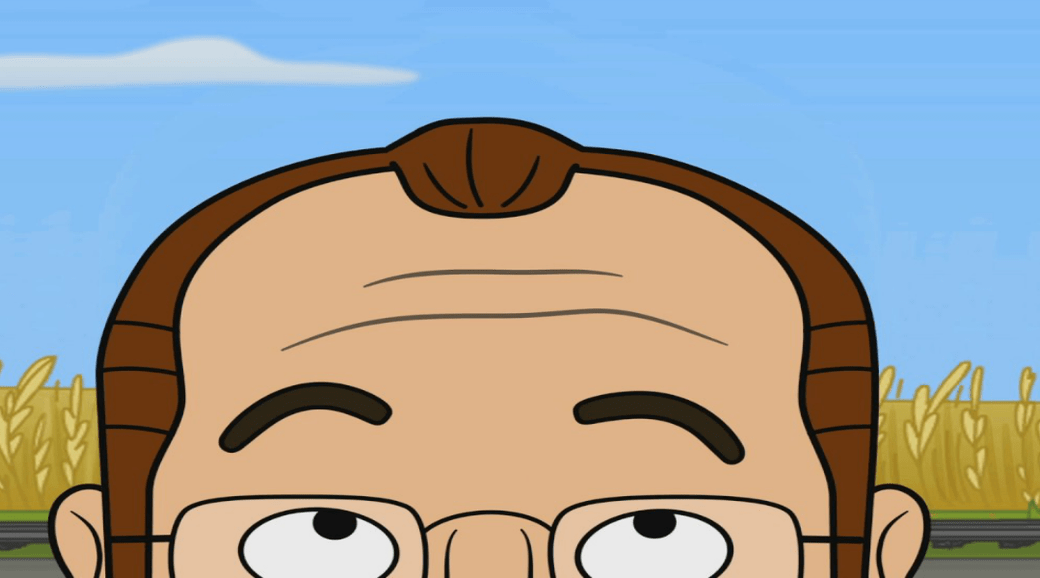
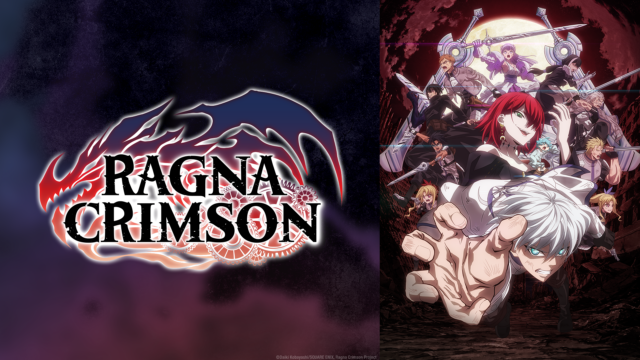
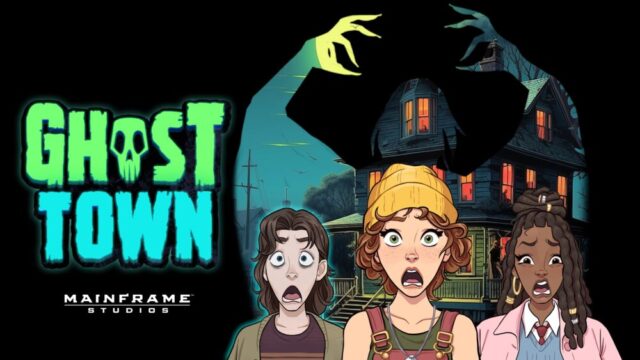
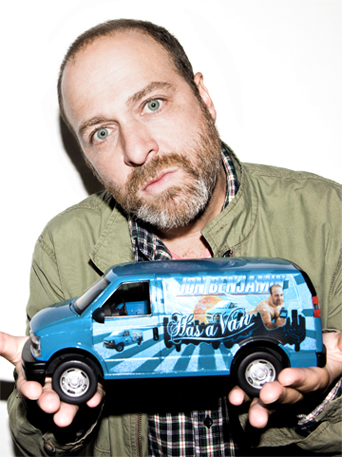
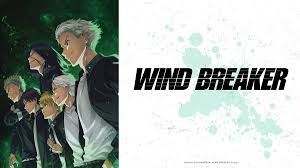

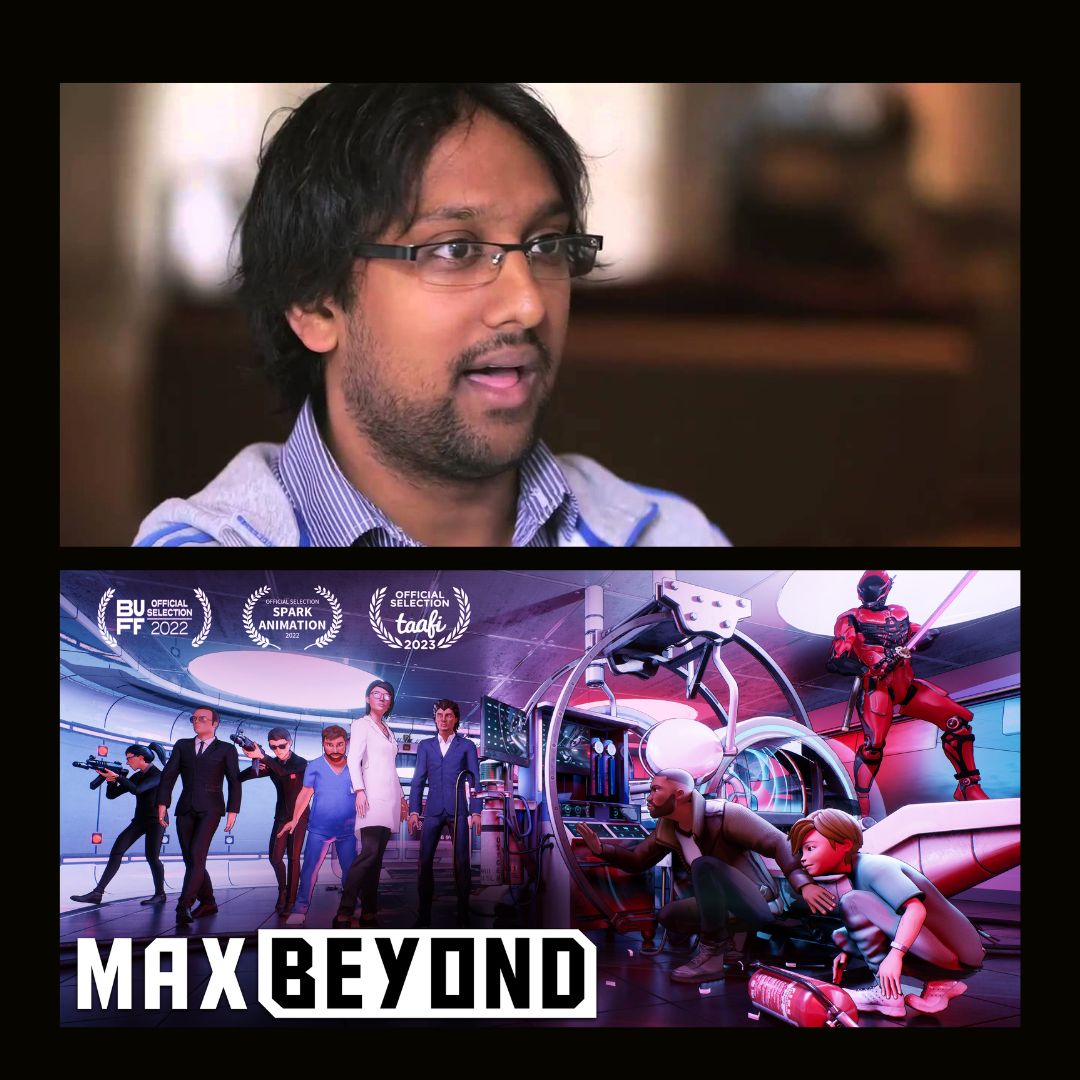


















Hi Ashley, thank you so much for reading and we love the feedback. Note that on that day we had 14th posts go up and only ten posts show on the front page, so it's possible the preview had already been archived by the time you got to it. One recommendation would be to add our RSS feed to your favorite news aggregator service like Feedly, this way you get all of the latest posts!